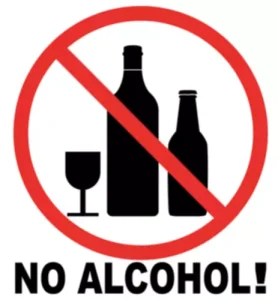
In this blog, we will discuss not only the connection between alcohol and anger but also how you can get the help you need if you are struggling. Second, although therapists completed intensive training and training cases, measures of therapist adherence or competence were not obtained. It is thus possible that therapists did not abide by treatment manuals and procedures or did so poorly, outside of awareness of the supervisors. Challenges to treatment fidelity such as a Rosenthal Effect and non-adherence to the treatment protocol cannot be ruled out. Future research should incorporate stringent treatment fidelity methodology in order to document adherence to protocol. Both treatments were delivered by female, masters-level social workers in accordance with treatment manuals for each condition; both therapists delivered both treatment protocols.
Alcohol-Related Aggression Treatment
- You’ll also have the opportunity to connect with our licensed Reframe coaches for more personalized guidance.
- In view of the high prevalence of alcohol-related violence, scientists and clinicians have undertaken numerous attempts to analyze this problematic relationship and to clarify underlying mechanisms and processes.
- Alcohol can impair the OFC, and disrupt communication between the OFC and the amygdala.
- Consider cutting back or abstaining from alcohol, identifying triggers that make you angry, and practicing stress management techniques like meditation.
- The treatment should target both the person’s mental health and substance use disorder as two parts of a whole.
For example, if you’re drinking and someone runs into you on accident, you’ll notice the act of being run into more than anything else. You’d fixate on the negative and miss cues, like the person quietly apologizing, or their expression showing that they felt bad for running into you. It can be harder for someone under the influence of alcohol to notice typical warning signs that emotions, especially anger, may be getting out of control. The Recovery Village at Palmer Lake offers comprehensive addiction treatment for drug and alcohol addictions and co-occurring mental health Alcohol Use Disorder conditions. Educational interventions that focus on the risks and consequences of alcohol-induced blackouts, such as psychoeducation, have been found effective in preventing further episodes.
- If you or a loved one is struggling with alcohol use and could benefit from alcohol addiction treatment, contact us today.
- If no one can defuse the tension, they may become aggressive or escalate into a rage.
- It’s not always easy to tell the difference at first glance, but there are clear signs you can look for.
- An angry drunk is someone who becomes hostile, aggressive, or violent when under the influence of alcohol.
Getting Help for Co-Occurring Disorders

It’s not always easy to open up about alcohol use and recovery, especially to people who don’t have any experience with it, but it’s a crucial part of the process. Some experts suggest that people who leave treatment programs early or don’t address underlying factors that contribute to alcohol misuse have a higher chance of experiencing this syndrome. These behaviors and emotional concerns can strain your relationships and interactions with others, especially if alcohol use has already had a negative impact on your relationships. The characteristics of this phenomenon may share similarities with the feelings and behaviors you might experience while still drinking.

If You Know You’re an Angry Drunk, What Can You Do?

One study published in a journal called Cognitive, Affective, & Behavioral Neuroscience sought to explore factors that make some people more aggressive when they drink. By Buddy TBuddy T is a writer and founding member of the Online Al-Anon Outreach Committee with decades of experience writing about alcoholism. Because he is a member of a support group that stresses the importance of anonymity at the public level, he does not use his photograph or his real name on this website. A lack of impulse control can make a person unable to resist the sudden, forceful urge to fly into a rage or act aggressively. Moreover, CBT interventions encompass assertiveness training and interpersonal skills development, empowering individuals to communicate their needs and boundaries effectively while navigating challenging situations. Offering reassurance and support can help alleviate feelings of distress and frustration.
Single Forever: Why More People Choose Solo Living & Thrive (Study Shows)
Drinking may also be a method to self-medicate negative emotions, including anger. Alcohol is a depressant substance, meaning that it helps to suppress some of the “fight-or-flight” stress reactions that anger can induce. Repeated alcohol abuse as a coping mechanism increases the odds for developing problems related to alcohol, however. It also raises the risk for negative consequences of outbursts related to explosive and uncontrolled anger. Some people are more prone to trouble controlling their anger while drinking than others.

Alcohol affects brain chemistry by altering neurotransmitters, which manage our mood and impulses. It decreases inhibition and can increase stress hormones like cortisol, making some individuals more prone to anger and aggression when drinking. Alcoholic rage syndrome refers to a pattern of intense anger and aggression triggered alcohol induced rage by alcohol consumption. This can range from verbal outbursts to physical violence, posing a risk not only to the individual’s health but also to those around them. Alcohol effects the prefrontal cortex of the brain, the region that moderates things like decision-making. What this means is that people whose personalities make them naturally quicker to become angry than others are even more likely to lose control under the influence of alcohol.
Providing reassurance and support
- Did you recently experience an incident that stemmed from your alcohol-related aggression?
- We know that alcohol may have an impact on one’s emotions and behaviors but how exactly does that work?
- They first consumed alcohol and were asked to recognize the emotions of different faces on a computer task.
- It is crucial to understand the significance of co-treatment approaches for individuals grappling with both alcohol recovery and anger management.
- Whether you want to reduce drinking or quit altogether Ria will partner with you to design a program to meet your personal goals.
- In addition to the brain, alcohol also risks health as it can severely damage the liver, heart, digestive system, immune system, mood, and sleep.
Being at the opposite end of someone with alcohol-related anger outbursts can be scary and painful. If you live with underlying anger challenges, for example, it may not be as noticeable when you’re sober because your frontal lobe allows you to manage your emotions and your behaviors. When you drink alcohol, those inhibitions are lifted, and if you’re feeling angry, you’re more likely to express it and do so in an exaggerated way.










